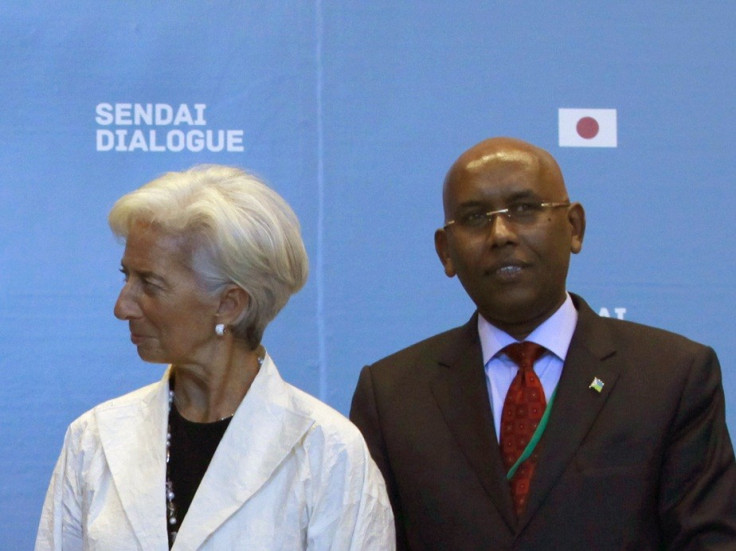Djibouti Finance Minister Ilyas Dawaleh: Political Reforms Should Encourage UK Investment
Dawaleh tells IBTimes UK Djibouti is becoming more democratic, despite accusations of electoral fraud and political arrests

Djibouti's finance minister brushed off criticism of the small African state's political system, insisting that there is stability and work is under way to make it an attractive investment for UK firms.
Speaking on the sidelines to IBTimes UK at the first ever UK-Djibouti trade and investment forum in London, Ilyas Dawaleh, minister of the economy and finance hit back at accusations from the political opposition that the government is dominated by one party and commits electoral fraud.
An angry group of Djiboutian protesters gather outside of Drapers' Hall in the City of London, where the first ever UK-Djibouti trade conference was taking place, to call for the release of political prisoners and the resignation of President Ismail Omar Guelleh.
"Have you ever heard of any opposition in Africa congratulating the winner? We have never seen it and this is unfortunate," said Dawaleh in an interview with IBTimes UK, of the recent elections in the country which saw the ruling People's Rally for Progress party, which retained the vast majority of seats in parliament at the last election.
Dawaleh was in London with his president and other senior members of the government to drum up trade and investment between the UK and Djibouti.
He insisted that the country was undergoing democratic reform, despite Guelleh's abolishing of the two-term limit set in Djibouti's constitution to extend his rule, and is steadily shifting towards a more proportional electoral system.
"It is a continuous process in change and reforms and we are very much committed, under the leadership of the president and under our own young generation of leaders, to continue in boosting our country to another level of development," said Dawaleh, though he did not give a time frame for reform.
Djibouti's Backdrop
The Djibouti government is seeking to attract foreign investment in a number of areas to improve it socio-economic position.
Some estimates put the poverty rate at 75% of its 800,000 population. The World Bank puts unemployment at 45%.
Many Djiboutians do not receive adequate healthcare, education, or food and water.
The small state benefits economically from its geographical position at the mouth of the Red Sea. Almost two thirds of commercial shipping passed through its waters and the country has a significant port.
Energy resources are a big concern for Djibouti, which imports what it needs. It is looking for foreign investment in renewables, such as geothermal, wind, and solar power.
Luring in UK Investment
Djibouti is also attempting to lure the financial services industry with its lack of currency controls and free currency exchanging.
Profits can also be exported from the country without any fees or taxation.
"The relations between Djibouti and the UK are long-standing, politically and security-wise. It is time, I think, to move to a trade and investment agenda," said Dawaleh.
"The trade and investment agenda is one of the top priorities of the Foreign and Commonwealth Office in Britain and we believe Djibouti, with its strategically geo-political positions, offers a number of opportunities for the UK."
He said corruption in the country, which is rife across Africa, is being tackled by his government to help improve the climate for investors.
"Djibouti is now studying to start building a new justice model which is based on common law practised here in England, which has been successful and full-implemented in Dubai," he said.
"The exact model is under discussion and we do hope that will be one of the tools that might help UK investors in the Horn of Africa and Djibouti specifically.
"From the other side, the government is undertaking a huge reforms program in terms of our fight against corruption. The public auditing body, which is the anti-corruption high commission, is running after corrupt Djiboutians all over the world."
To aid the political stability of the country and encourage much-needed foreign investment, Dawaleh called for the opposition and ruling parties "to work towards a smooth democracy in Djibouti".
"We have only one enemy in Africa. A common enemy - poverty. This is our target," he said.
Related articles:
UK Minister Mark Simmonds: Britain Must Invest in Africa Now
Tiny African Nation of Djibouti Poised for Historic Election
© Copyright IBTimes 2024. All rights reserved.






